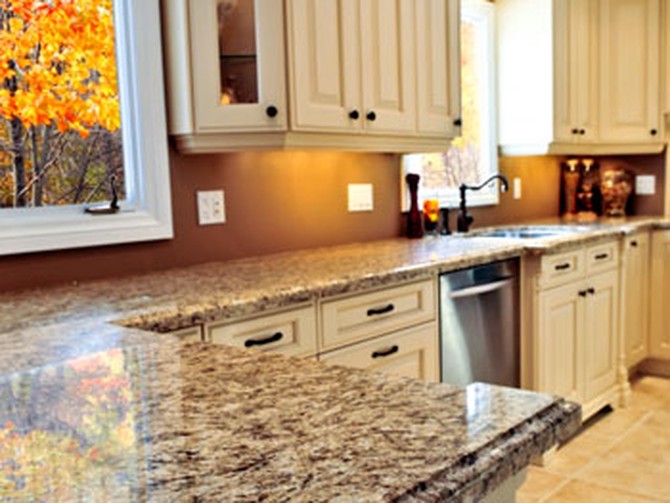Viral Health Rumors—Fact or Fiction?
Mercury in candy bars? Radon in granite counter-tops? Here's the news...;

Photo: © 2009 Jupiterimages Corporation
Aluminum in antiperspirants causes Alzheimer's?
False, according to Joshua Grill, PhD, at the Mary S. Easton Center for Alzheimer's Disease Research at UCLA. Risk factors are family history, brain injury, diabetes, heart disease, and, of course, aging.

Photo: © 2009 Jupiterimages Corporation
There's Mercury in Candy Bars?
Earlier this year, a study in
the journal Environmental
Health suggested that the
ubiquitous sweetener high fructose
corn syrup (HFCS)
contained mercury—at
levels high enough to possibly
create problems for children
and pregnant women.
(Mercury can interfere with
brain development.) The
corn syrup industry's trade
association responded,
saying that the manufacturing
process that introduced
mercury into HFCS is no
longer used. Hold on, said
the Institute for Agriculture
and Trade Policy; the process
is still in use at four plants
around the country. Do
you have a headache yet?
Here's our advice: Avoid foods that have large amounts of HFCS (look to see if it's among the first four ingredients), but not because you're worried about mercury. Some products may have traces of the metal, but it's probably not enough to worry about, say some food safety experts. The real problem with HFCS is that we get far too much of it—about 40 pounds a year on average. Get less HFCS and your diet will improve overnight. — Nancy Gottesman
Here's our advice: Avoid foods that have large amounts of HFCS (look to see if it's among the first four ingredients), but not because you're worried about mercury. Some products may have traces of the metal, but it's probably not enough to worry about, say some food safety experts. The real problem with HFCS is that we get far too much of it—about 40 pounds a year on average. Get less HFCS and your diet will improve overnight. — Nancy Gottesman

Photo: © 2009 Jupiterimages Corporation
GRANITE COUNTERTOPS CONTAIN RADON?
Unlike most e-mail scares, this one has a grain of truth—but there's no need to remodel your kitchen. Radon is a naturally occurring radioactive gas concentrated in soil, water, and rock in various geographic areas, and it can seep into the air we breathe. "All granite emits some radon," says Daniel J. Steck, PhD, a professor of physics at St. John's University in Collegeville, Minnesota, who is conducting research on granite countertops for the Minnesota Radon Project. And radon is the second leading cause of lung cancer, after smoking cigarettes. However, Steck says that countertops emit very low levels of the gas, and the risk to homeowners is tiny. If you're still concerned, you can check air levels with a home test (which costs $15 and up); get information about tests and certified radon technicians in your area at the EPA's Web site, EPA.gov/Radon. — Nancy Gottesman
Keep Reading: The truth about food technology: What's safe, what's not
Keep Reading: The truth about food technology: What's safe, what's not
From the November 2009 issue of O, The Oprah Magazine
As a reminder, always consult your doctor for medical advice and treatment before starting any program.

